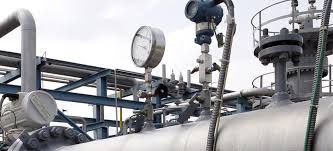

The more commonly used subsections and paragraphs will be covered, and a discussion of individual problems or situations will be included.
The candidates will also be provided with a comprehensive introduction to the requirements of various codes and standards, regarding inspection, repairs and alterations of pressure equipment, and in particular pressure vessels. The requirements of the National Board Inspection Code and the API-510 will be covered in detail. A brief introduction to API-579, Fitness for Service will also be included. Simple flaw evaluation procedures will be evaluated.
By the end of this course delegates will be able to:
Anyone involved with the purchase, design, fabrication, or inspection of pressure vessels including users, manufacturers, repair organizations, inspection agencies and other organizations involved with the design, maintenance and repair of pressure equipment. Some technical background will be helpful, but attendees are not required to have an engineering degree or previous work experience in the subject matter
Module I: Design & Fabrication of Pressure Vessels
Module II: Inspection, Repairs & Alterations of Pressure Vessels
CDGA attendance certificate will be issued to all attendees completing minimum of 80% of the total course duration
| Code | Date | Venue | Fees | Register |
|---|---|---|---|---|
| FAC121-02 | 15-06-2026 | Istanbul | USD 5950 | |
| FAC121-03 | 24-08-2026 | Kuala-Lumpur | USD 5950 | |
| FAC121-04 | 06-12-2026 | Dubai | USD 5450 |
.jpg)
This comprehensive course covers the 2007 Edition of the ASME Code, Section VIII: Division 2. With this Edition, this Code was totally re-written and updated to the latest technology. Some of the desi ...
Providing services with a high quality that are satisfying the requirements
Appling the specifications and legalizations to ensure the quality of service.
Best utilization of resources for continually improving the business activities.
CDGA keen to selects highly technical instructors based on professional field experience
Since CDGA was established, it considered a training partner for world class oil & gas institution
3012, Block 3, 30 Euro Business Park, Little Island, Co. Cork, T45 V220, Ireland
Mon to Fri 09:00 AM to 06:00 PM
Contact Us anytime!
Request Info